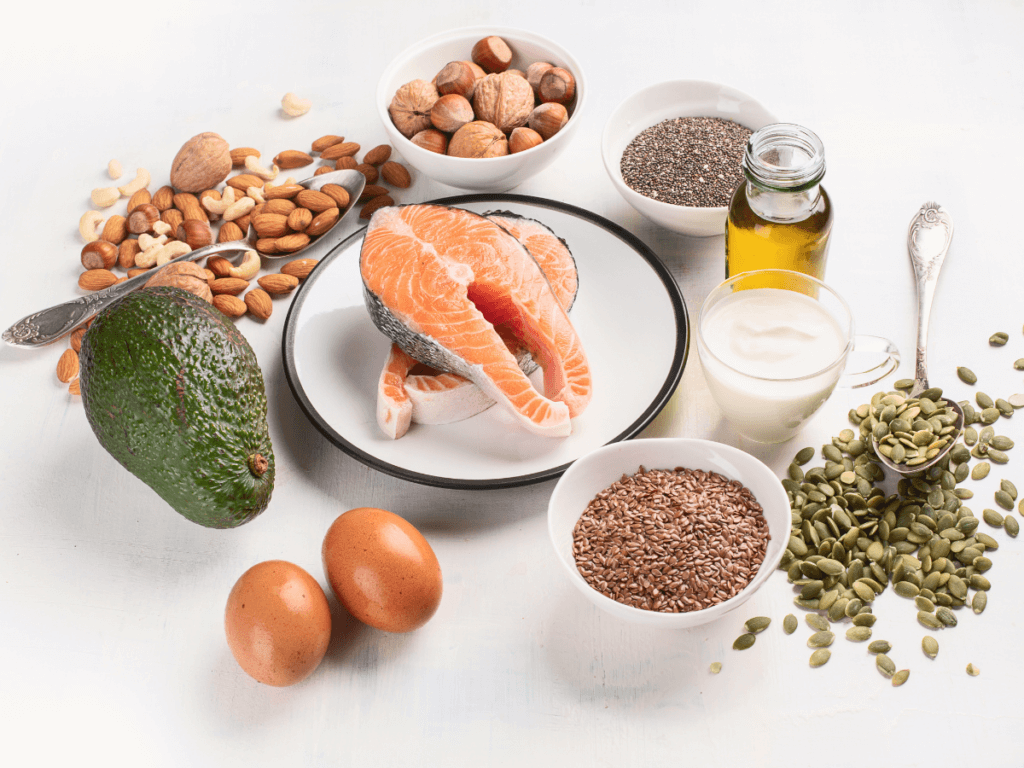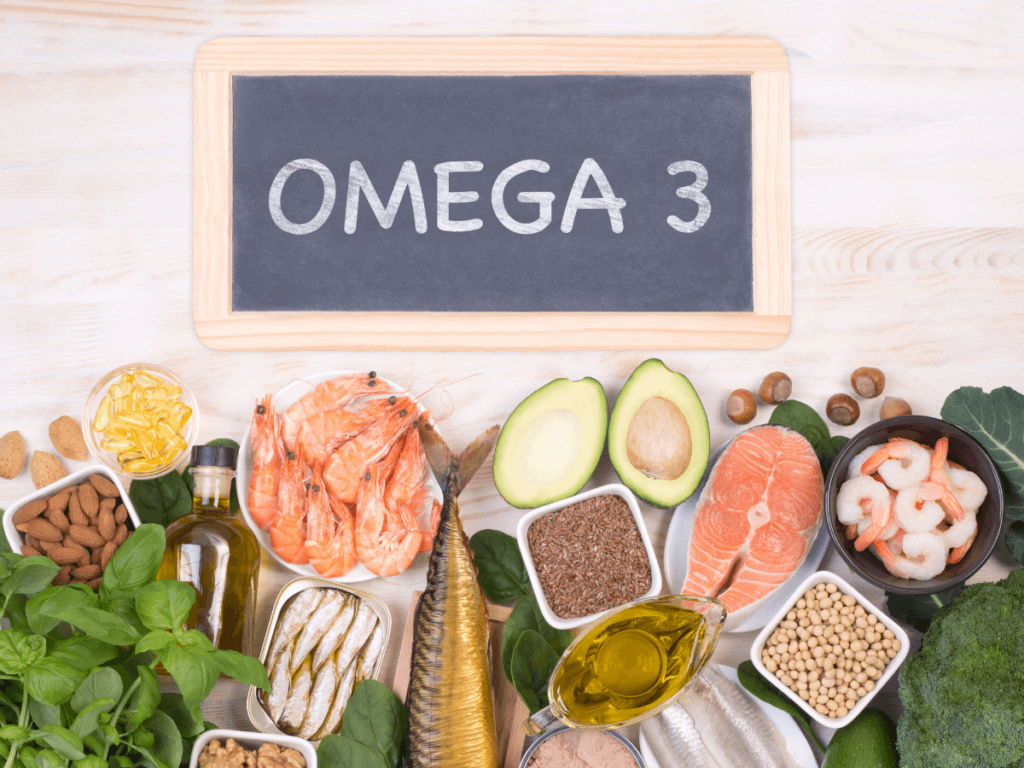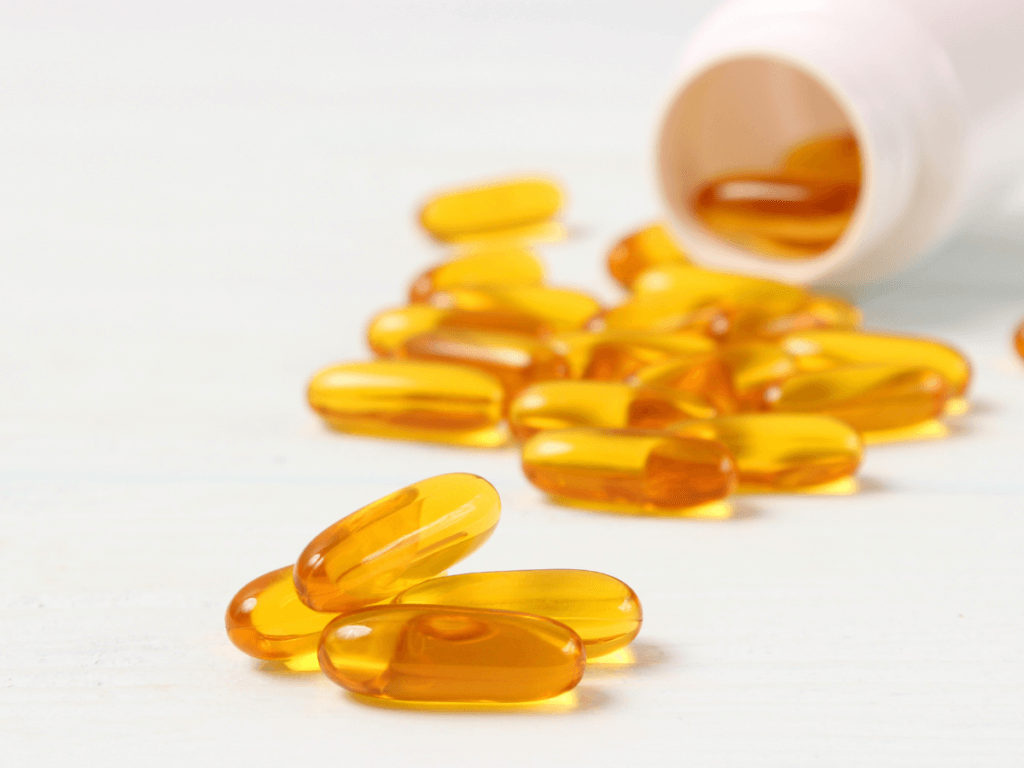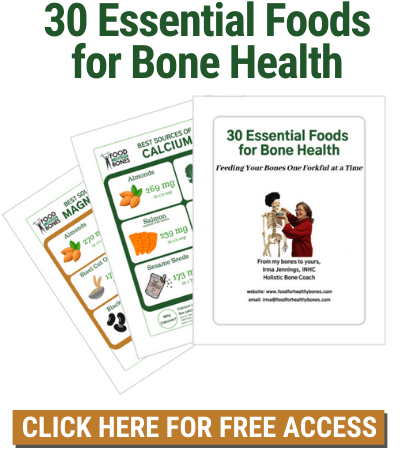Maximize Bone Strength with Omega-3 Fats and Fish Oil
The role that diet plays is often the focus of the pursuit of optimal health. This article explores the significance of Omega-3 fats—found primarily in fish oil—for maintaining strong bones, an aspect that is frequently disregarded. We hope to assist you in selecting and choosing the best supplements as we examine the advantages and nuances of fish oil supplements. Learn about the importance of Omega-3 fats for bone health, the best way to select fish oil supplements that meet your needs, and more.
Unveiling the Role of Fats in Bone Strength

Skelley (the skeleton that lives in us all) and I often talk about getting calcium and other minerals to make your bones as strong as can be.
But it’s not that simple…
There’s another super nutrient you must get to make those minerals work.
I’m talking about FAT.
Now, fat has gotten a bad rap since the 1970s when the low-fat craze took over the world. But the truth is that healthy fats are vital for strong bones. You see, when it comes to bones, essential fatty acids like omega-3s are just that – essential. And you have to get them from your food.
Fats in general build a strong skeleton by increasing the amount of calcium that gets into your bones. They also help your body hold on to calcium by reducing the amount that gets excreted in your urine.
Fats are also essential components in cartilage and bone. They boost collagen which improves bone strength. And they transport and absorb bone-building vitamins like K2, D, and A.
The Essential Benefits of Omega-3 Fats

Omega-3 fats are particularly bone-friendly. They inhibit the formation of osteoclasts, the cells that break down bone. At the same time, they increase osteoblasts, the cells that build bone. And they reduce the inflammation that may break down bone.[i]
You can get plenty of omega-3 fats from your diet. The best sources are wild-caught fatty fish like salmon. But it has to be wild. Farmed salmon is much fattier than wild salmon, but it contains FAR LESS healthful omega-3 fat and less protein.
Other small cold-water fish are great choices like herring, mackerel, anchovies, and sardines. You can also get a healthy amount of omega-3 fats from pastured eggs or grass-fed beef (but not conventional beef).
I find that many of my clients – for whatever reason – are not getting enough omega-3s from their food. Many of them need to take a supplement.
The Importance of Quality in Fish Oil Supplements

A good rule of thumb is to try to get at least 1,000 milligrams of omega-3s every day. Look for a supplement that gives you at least 600 mg from DHA and 400 mg from its EPA. They are the two major types of omega-3s.
And look for a good quality fish oil supplement. That’s not always easy. According to Dr. Bryan Haycock, a research expert in supplements, it’s the “wild west” when it comes to the supplement industry. Dr. Haycock holds a Ph.D. in exercise physiology and has worked in the dietary supplement industry for more than 15 years. He teaches at the University of Utah's department of Nutrition and Integrative Physiology. And he co-wrote the book “Dietary Supplements.”
Dr. Haycock points out that unlike drugs, the FDA doesn’t approve the safety or efficacy of supplements before they hit the stores. If there’s a safety question, the FDA can take a supplement off the market but that’s rare.
How to Choose the Right Fish Oil Supplement

So, buyer beware!
When choosing a brand, you can’t really expect that one company has better fish oil than another. According to Dr. Haycock, there are only a few large companies in the world that produce fish oil. They supply all the brands you find at your health food store or online.
The best thing you can do is find a company that you trust and has a good reputation. Look for a brand that doesn’t use a lot of additives and fillers. And one that follows “good manufacturing practices” or GMP.
A good way to know if a supplement is high quality is to become a member of ConsumerLab.com. They are an independent lab, test a wide range of supplements, and are my go-to for supplement information. They make sure that the ingredients on the label are actually in the bottle. They do significant research on all kinds of supplements.
And don’t think that prescription fish oil is any better than supplements. Drug companies buy from the same fish oil suppliers as supplement companies according to Dr. Haycock. But the prescription form might be covered by your insurance whereas the supplement probably won’t be.
Thank you for your time.
Navigating an osteoporosis diagnosis can be challenging, especially when medication seems like the only option presented by your doctor. If you're looking for clarity and alternative ways to manage your condition, we're here to help.
Book a Complimentary 15-minute Call to Explore:
- Personalized Guidance: Tailored advice on managing osteoporosis beyond just medication.
- Holistic Approaches: Insights into diet, exercise, and lifestyle adjustments for bone health.
- Education & Support: Understand your condition and discover resources to take control of your health.
References:
- [1] Kruger M., Horrobin D. “Calcium metabolism, osteoporosis and essential fatty acids: A review.” Progress in Lipid Research. Volume 36. September 1997.
- [1] Olson M, Liu Y, Dangi B, Paul Zimmer J, Salem N, Nauroth J. “Docosahexaenoic acid reduces inflammation and joint destruction in mice with collagen-induced arthritis.” Inflamm Res. 2013;62(12):1003-13.
From my bones to yours,
Irma Jennings, INHC
Your Holistic Bone Coach
[email protected]


